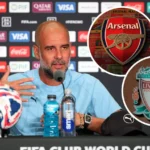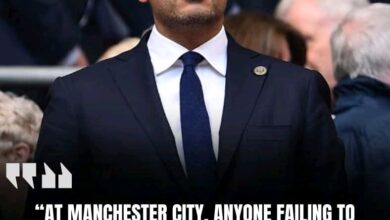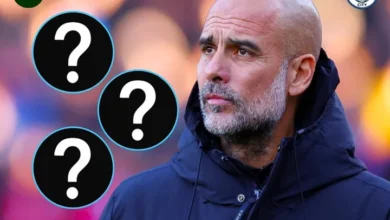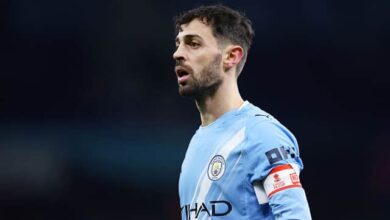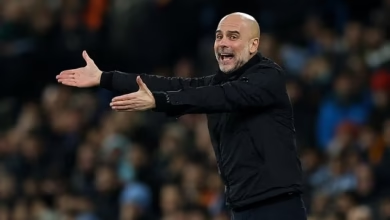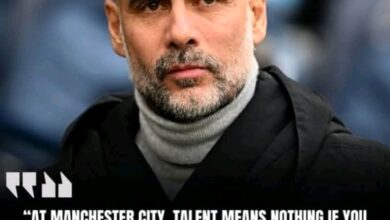What the Man City dressing room are really concerned about ahead of the ‘new season
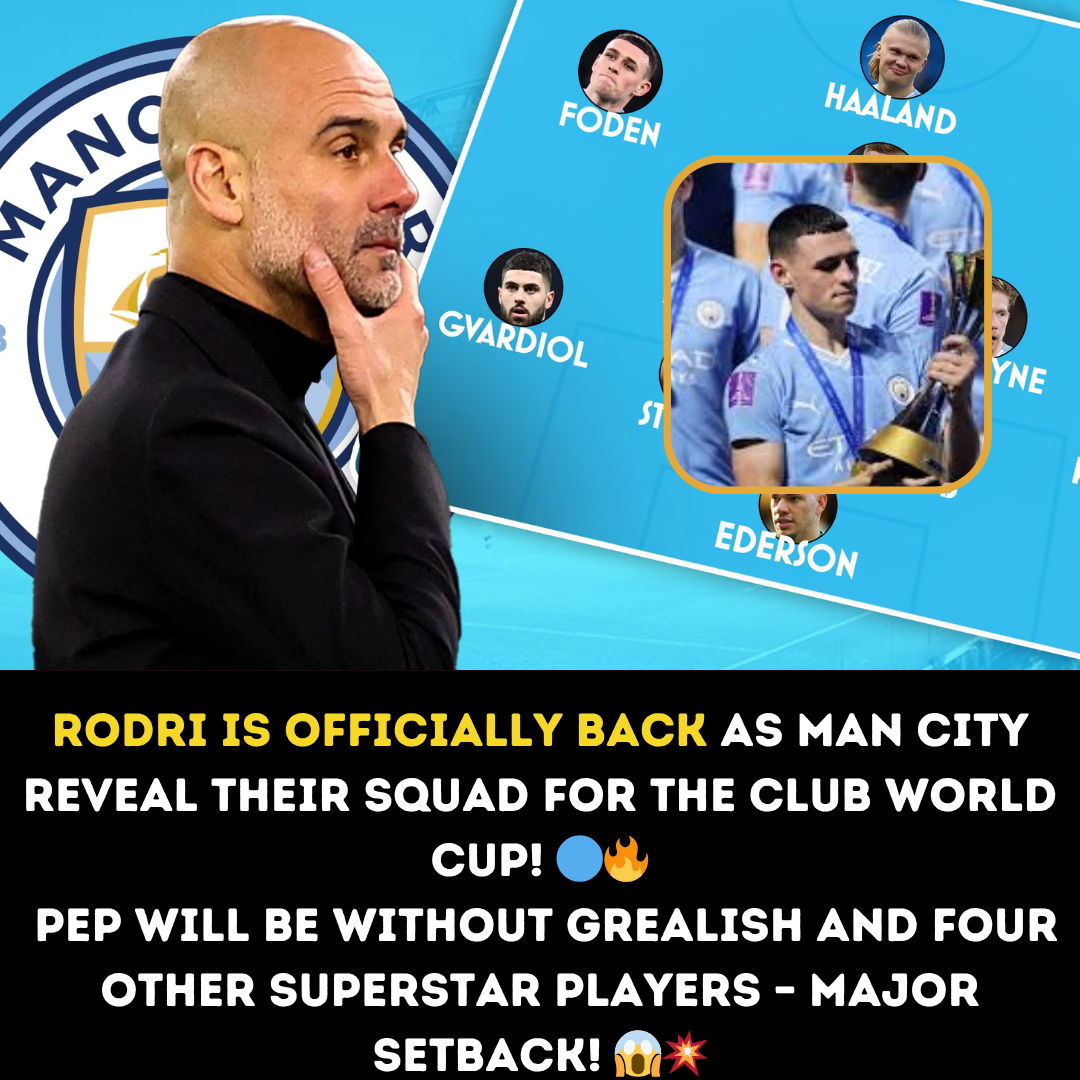
The corridors of Manchester City’s training ground have been unusually subdued this summer, with the echoes of a disappointing 2024/25 campaign still reverberating through the Etihad Stadium. For the first time since the 2016/17 season, Pep Guardiola’s men ended a campaign empty-handed, marking a dramatic fall from grace for a team that had dominated English football with four consecutive Premier League titles.
The Weight of Disappointment
The 2024/25 season will be remembered as a watershed moment in Manchester City’s recent history. What began as another quest for domestic and European glory ended in unprecedented mediocrity, with the Citizens struggling to maintain the standards that had made them the envy of world football. The sight of City needing to secure Champions League qualification on the final day of the season was a stark reminder of how quickly fortunes can change in modern football.
The psychological impact of this downturn cannot be understated. Players who had grown accustomed to lifting trophies and celebrating victories found themselves grappling with the unfamiliar taste of failure. The dressing room atmosphere, once buoyant with confidence and expectation, became heavy with the burden of unmet expectations and questions about the future.
Pep Guardiola, the architect of City’s golden era, has acknowledged the need for significant changes. His plan to bring in four or five new faces during the summer transfer window reflects not just tactical considerations, but a recognition that fresh blood is needed to reignite the competitive fire that seemed to flicker throughout the previous campaign.
The Unwelcome Interruption: FIFA Club World Cup
Just as Manchester City’s players were looking forward to a much-needed summer break to recover both physically and mentally from their challenging season, FIFA’s expanded Club World Cup emerged as an unwelcome obstacle to their recuperation plans. The tournament, running from June 14 to July 13, represents a significant burden for players who have already endured a grueling domestic and European campaign.
Manuel Akanji, the Swiss defender who has been one of City’s most consistent performers since his arrival from Borussia Dortmund in 2022, has become the voice of the dressing room’s frustration. His candid admission about the squad’s lack of enthusiasm for the tournament has lifted the lid on growing concerns about player welfare and fixture congestion in modern football.
“I have been a strong critic of this competition for some time now,” Akanji revealed during Switzerland’s preparations for their friendly against Mexico in Salt Lake City. “We players would love to have some holidays, and some time for our bodies to rest. My City teammates are not exactly overjoyed about the tournament either.”
This sentiment reflects a broader issue within professional football, where the demands on elite players continue to escalate without adequate consideration for their physical and mental wellbeing. The Club World Cup, while prestigious, comes at a time when City’s squad is already dealing with the accumulated fatigue of a disappointing but nevertheless demanding season.
The Physical and Mental Toll
The concern expressed by Akanji goes beyond mere preference for vacation time. Professional footballers operate at the highest levels of physical performance, and adequate recovery periods are crucial for maintaining peak condition and preventing injuries. The condensed nature of modern football schedules has already contributed to an increase in muscle injuries and burnout among elite players.
For Manchester City, the timing of the Club World Cup is particularly problematic. Coming off a season where several key players struggled with fitness issues, the additional tournament represents another layer of physical stress that could impact their preparation for the 2025/26 campaign. The Swiss defender’s concern about recovery time is well-founded, especially considering that City are expected to progress deep into the tournament.
“If we reach the final, then the time period for us to recover ahead of the new season will become even shorter,” Akanji noted, highlighting the catch-22 situation facing successful clubs. Excellence in the Club World Cup would only exacerbate their preparation challenges for the following season.
Strategic Implications for Squad Management
Guardiola faces a complex balancing act in managing his squad through the Club World Cup while preparing for a crucial season ahead. The Catalan coach has built his reputation on meticulous preparation and tactical perfectionism, but the compressed timeline between the tournament’s conclusion and the start of the new Premier League season leaves little room for his preferred methodical approach.
The challenge is compounded by City’s ongoing transfer activities. With deals for players like Tijjani Reijnders reportedly finalized and negotiations for Wolves’ Rayan Ait-Nouri progressing, Guardiola must integrate new signings while managing the fatigue levels of his existing squad. The Club World Cup provides an opportunity to assess these new acquisitions in competitive conditions, but it also risks disrupting the chemistry-building process that is crucial for team cohesion.
The Broader Context of Player Welfare
Akanji’s criticism of the Club World Cup reflects growing unrest among professional players about fixture congestion and the apparent disregard for player welfare in the pursuit of commercial opportunities. The expanded tournament format, designed to increase FIFA’s revenue streams and global football’s commercial appeal, has been implemented with little consultation with players or consideration for their physical limits.
This tension between commercial interests and player welfare represents one of the most significant challenges facing modern football. Players’ unions across Europe have increasingly voiced concerns about the packed fixture calendar, with some threatening strike action if their concerns are not addressed. Manchester City’s situation exemplifies this broader struggle, where elite players are expected to maintain peak performance levels despite increasingly demanding schedules.
Tactical Considerations and Team Selection
The Club World Cup presents Guardiola with both opportunities and challenges from a tactical perspective. The tournament format, with group stage matches on June 18, 23, and 26, followed by potential knockout rounds, requires careful squad rotation to manage player fitness while maintaining competitive standards.
City’s group, featuring Wydad AC, Al Ain, and Juventus, presents varying levels of challenge. While the Manchester side would be expected to progress comfortably past the first two opponents, their encounter with Juventus promises to be a genuine test of their current form and new signings’ integration.
The Italian giants, under their own rebuilding process, will provide valuable insight into City’s progress under Guardiola’s summer reconstruction. This match could serve as an early indicator of whether the Spaniard’s transfer strategy is bearing fruit or if further adjustments are needed before the Premier League season begins.
Financial and Commercial Pressures
Despite the players’ reluctance, Manchester City’s participation in the Club World Cup carries significant financial implications. The tournament offers substantial prize money and commercial opportunities that could help offset the costs of Guardiola’s summer spending spree. For a club operating under Financial Fair Play scrutiny, these revenue streams are not merely desirable but potentially necessary.
The commercial aspect extends beyond direct tournament earnings to include exposure in new markets, particularly in the United States where the tournament is being held. City’s global brand development strategy relies heavily on such high-profile international exposure, making their participation almost mandatory regardless of player preferences.
The Psychological Dimension
Beyond the physical challenges, the Club World Cup represents a psychological test for a Manchester City squad still processing their disappointing domestic campaign. The tournament offers an opportunity for redemption and confidence-building, but it also carries the risk of further disappointment if results don’t improve.
For players like Akanji, who have experienced both the highs of City’s dominant periods and the lows of the recent campaign, the mental aspect of competing in another high-stakes tournament cannot be underestimated. The pressure to perform while dealing with fatigue and limited preparation time creates a complex psychological environment that could either galvanize the squad or exacerbate existing confidence issues.
Transfer Window Implications
The Club World Cup’s timing also complicates Manchester City’s transfer strategy. With the tournament beginning in mid-June, the club has limited time to complete signings and integrate new players before competitive action resumes. This compressed timeline puts additional pressure on the recruitment team to finalize deals quickly and efficiently.
The reported signings of Reijnders and the ongoing negotiations for Ait-Nouri represent Guardiola’s commitment to squad renewal, but these players will have minimal time to adapt to City’s playing style before being thrust into tournament action. This situation could lead to a reliance on existing squad members who are already expressing fatigue and reluctance about the additional fixtures.
Looking Ahead: The 2025/26 Season Preparation
Perhaps the most significant concern raised by the City dressing room relates to their preparation for the upcoming Premier League season. The compressed timeline between the Club World Cup’s conclusion and the start of domestic competition leaves little room for the traditional pre-season preparation that has been crucial to Guardiola’s success.
Pre-season training camps, tactical workshops, and gradual fitness building typically form the foundation of City’s seasonal preparation. The Club World Cup’s July 13 finale, followed by mandatory rest periods for participating players, could leave Guardiola with just weeks to prepare his squad for another demanding Premier League campaign.
This situation is particularly concerning given City’s need to bounce back from their disappointing 2024/25 season. The pressure to return to winning ways will be immense, but the physical and tactical preparation time may be insufficient to achieve the standards Guardiola demands.
The Wider Impact on English Football
Manchester City’s Club World Cup participation also has implications for English football as a whole. As one of the Premier League’s representatives in the tournament, their performance will be scrutinized as a measure of English football’s global standing. The pressure to succeed extends beyond club interests to national pride and the Premier League’s international reputation.
However, the fitness and preparation concerns raised by City’s players could impact their early-season Premier League form, potentially affecting the competition’s overall quality and competitiveness. If City struggle in the opening months due to fatigue and inadequate preparation, it could influence the title race and European qualification battles.
Conclusion: Balancing Ambition and Reality
The Manchester City dressing room’s concerns about the FIFA Club World Cup encapsulate the broader tensions within modern football between commercial ambition and sporting integrity. While the tournament represents an opportunity for glory and financial gain, the human cost in terms of player welfare and sporting preparation cannot be ignored.
As Akanji noted, “If we take part, then of course we want to win it,” highlighting the professional commitment that defines elite footballers. However, his honest assessment of the squad’s reluctance reveals the reality behind the glamorous facade of international club competition.
The coming months will test Manchester City’s ability to navigate these competing demands while rebuilding after their disappointing season. Success in the Club World Cup could provide the confidence boost needed for a successful campaign ahead, but failure to manage the physical and psychological challenges could compound their recent struggles.
Ultimately, the situation facing Manchester City reflects the evolving nature of professional football, where commercial considerations increasingly dictate sporting schedules. The challenge for clubs, players, and governing bodies is finding a sustainable balance that preserves the integrity and quality of the sport while meeting the financial demands of modern football’s global marketplace.
The eyes of the football world will be on Manchester City as they navigate this challenging period, with their experience potentially influencing future decisions about tournament scheduling and player welfare in professional football.




